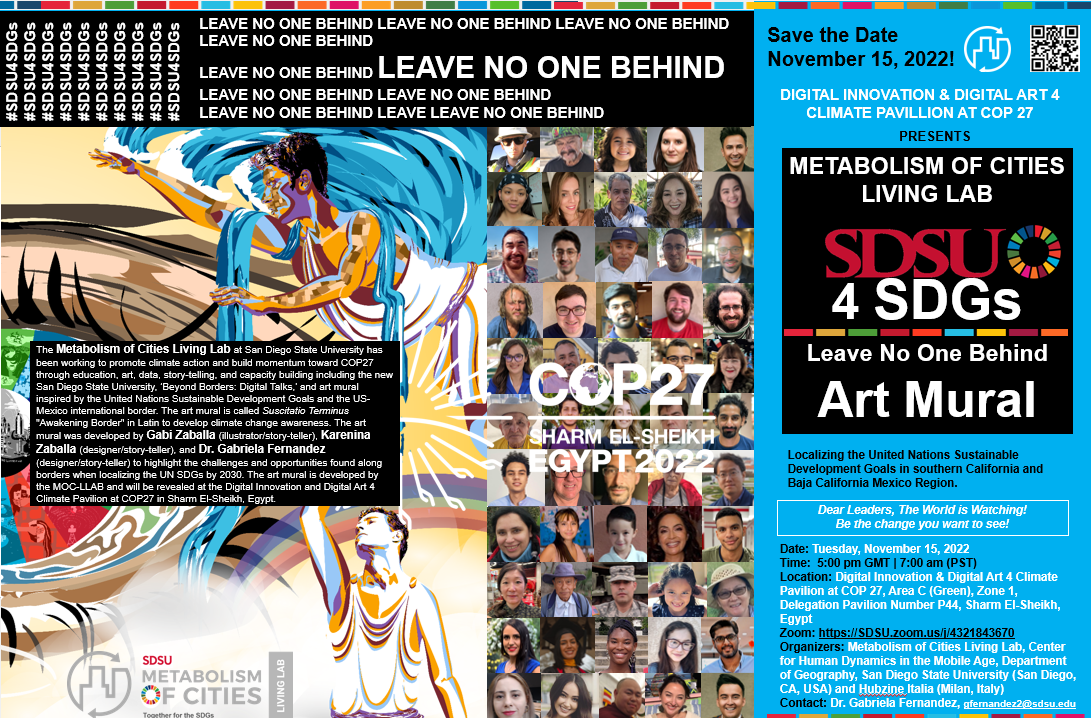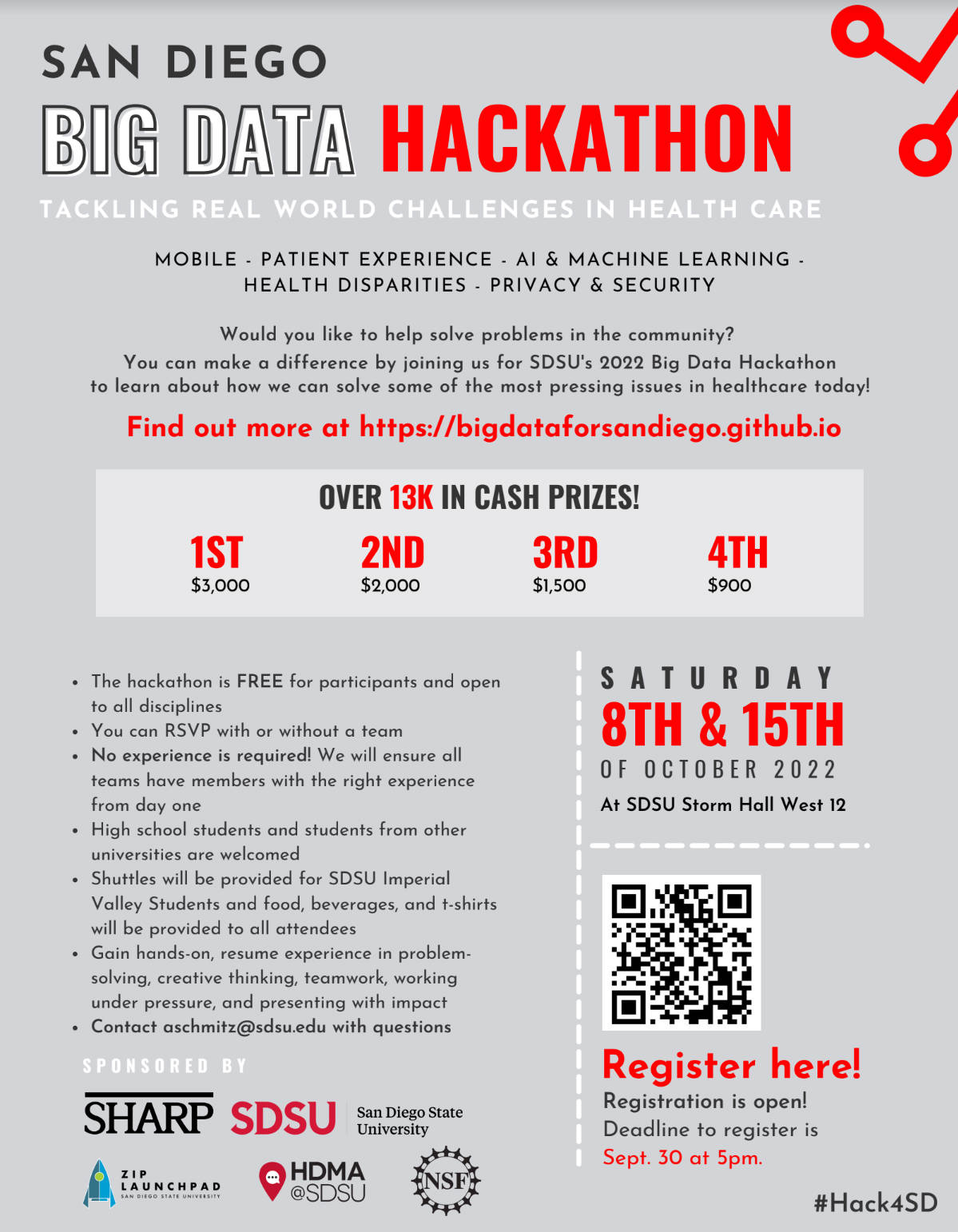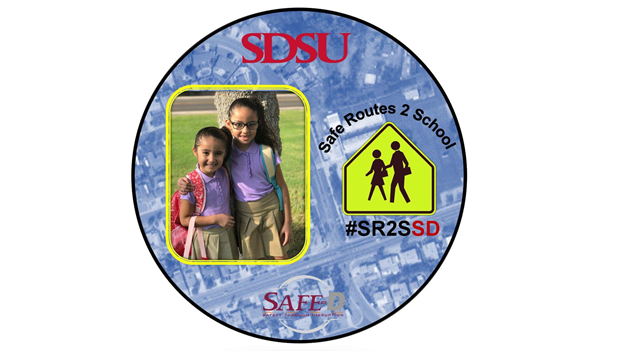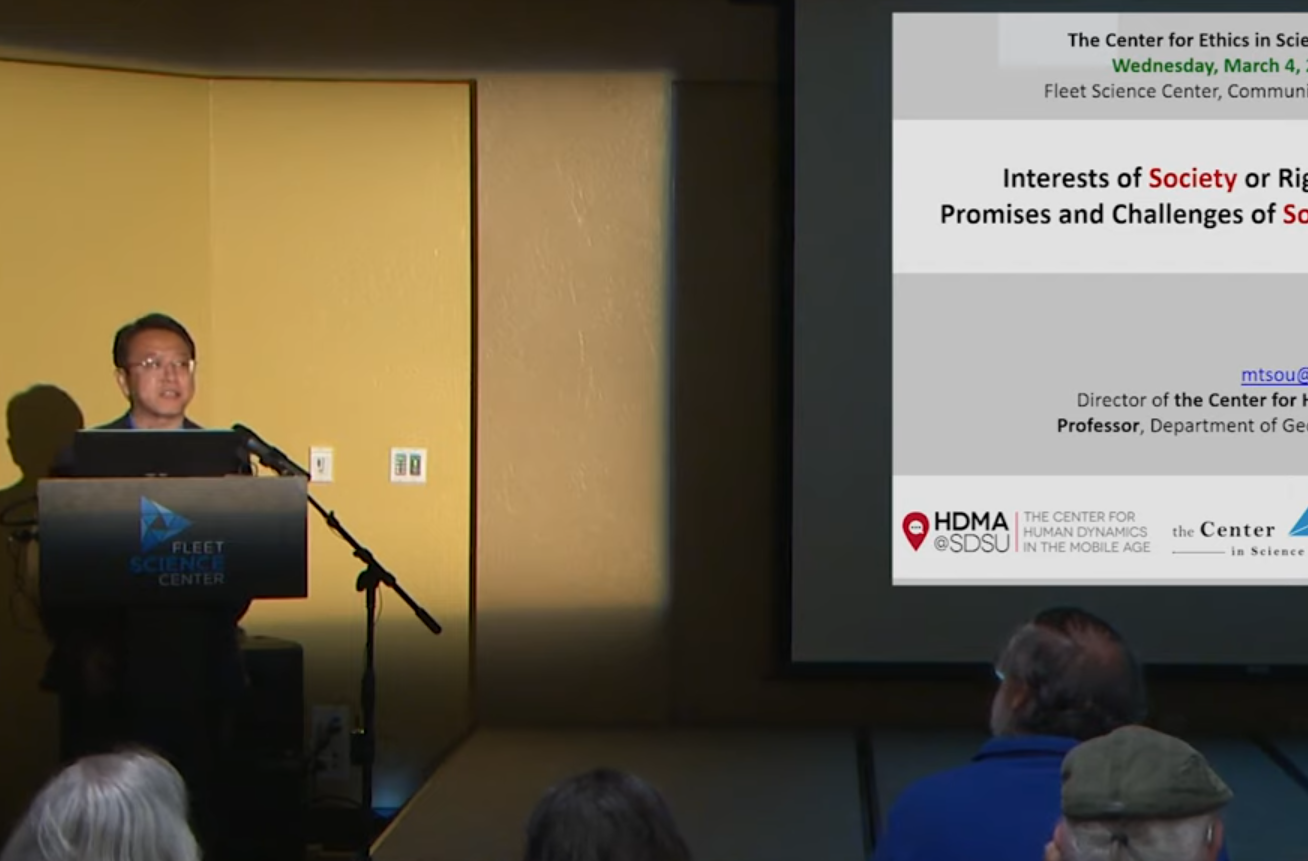News & Media(To view pdf files you may need to download Adobe Reader.) SDSU NewsCenter Newsletter Our NSF project was featured in SDSU NewsCenter, highlighting our collaborative efforts and progress. Many thanks to everyone for their contributions. You can find the story Here 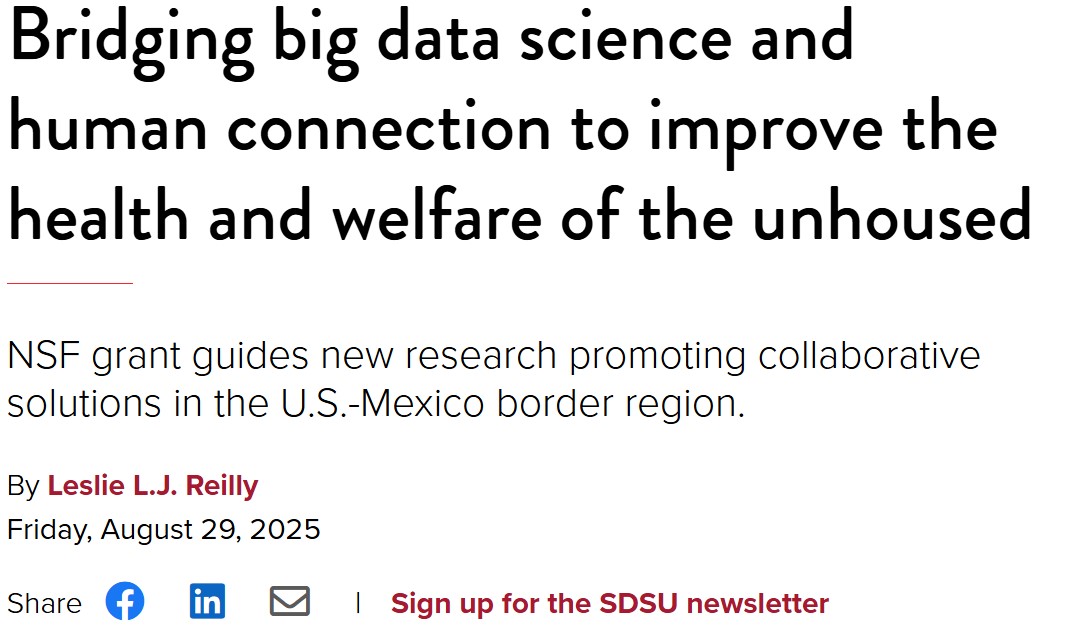
Highlights of Recent Conferences, Workshops, and Upcoming Events
1) ESRI User Conference 2024 – Youth 4 SDGs Presentation Metabolism of Cities Living Lab @ SDSU at the United Nations Climate Conference - COP27 in Egypt. The Metabolism of Cities Living Lab (MOC-LLAB) under the Center for Human Dynamics in the Mobile Age in the Department of Geography at San Diego State University (SDSU) in San Diego, California, USA is pleased to announce its participation in COP27, the upcoming annual United Nations Climate Change conference. The 27th session of the Conference of the Parties (COP27) to the United Nations Framework Convention on Climate Change (UNFCCC) will take place in the coastal city of Sharm El-Sheikh, Egypt. This year’s Conference taking place under the Egyptian Presidency, has been widely viewed as an African COP with issues focusing on Loss and Damage, the impacts of climate change on communities and the financial support needed to adapt. We will be joining our civil society partners at the conference in a call for action to support those on the front lines of the climate crisis including across the African continent and on Small Island Developing States (SIDS). 2022 Big Data Hackathon for San Diego @ SDSU October 08 and 15, 2022 (Storm Hall West #12) with Total $13,000 PRIZES!
Registration OPEN NOW (before Sep. 30, 2022).
We are seeking innovative ideas, solutions, and apps for tackling real-world challenges in Healthcare and Health Disparities (such as COVID-19 impacts to our San Diegans). Participants can use their skills in journalism, business, marketing, data, public health, urban planning, programming, mapping or GIS to make San Diego a better place to live. It’s not just for programmers or public health students; the emphasis on design and creativity means that all skills will be critical to the team’s work. Teams can be formed by your own groups or by the Hackathon organizers if they are not formed prior to the event. We will also provide training opportunities for participants who may need to get more data analytic skills. Dr. Gabriela Fernandez received new funding from Safe-D National UTC center to evaluate Safe Routes to Schools in San Diego. Dr. Gabriela Fernandez is awarded over $300K to conduct the transportation safety project, funded by National University Transportation Center (UTC) for the project title, " Evaluating the Safe Routes to School (SR2S) Transportation Program in Socially Vulnerable Communities in San Diego County, California". She will collaborate with Dr. Arash Jahangiri (Department of Civil Engineering at SDSU), Dr. Sahar Ghanipoor Machiani (Department of Civil Engineering at SDSU), and Dr. Ming-Hsiang Tsou (Director of the HDMA Center) together to utilize GIS and Virtual Reality applications for student-travel-to-schools safety issues. Professor Tsou gives a discussion on the Challenges of Social Media and Big Data by UCSD TV. ESRI Blog: From October 3-10, San Diego State University hosted their first ever Big Data Hackathon, using the social media hashtag #Hack4SD (source: ESRI Blog). The Daily Aztec: Oct. 14, 2015, Srudent Hackathon competition creates new community safety app The winners of the Big Data Hackathon developed a new mobile app that would serve the local community. (source: The Daily Aztec). SanDiego6: Oct. 3, 2015, SDSU's Big Data Hackathon San Diego State Univeristy held its firstever Hackathon event on campus which features on using data to solve civic issues in San Diego. (source: SanDiego6). SDSU NewsCenter: Sept. 22, 2015, Hacking into Big Data San Diego State Uiversity's first-ever Big Data Hackathon will feature teams competing to develop apps and technology that use data to address societal issues. (source: SDSU NewsCenter). 
SanDiego6: Apr. 29, 2015, RELIEF TO DISASTER AREAS: THERE'S AN APP FOR THAT SAN DIEGO - There is now a new way to track what’s going on in disaster zones like Nepal thanks to students and scientists at San Diego State University. (source: SanDiego6). 10news: Apr. 29, 2015, SDSU creates program to track Nepal Tweets SAN DIEGO -- A program developed by San Diego State University is tracking Twitter posts from earthquake-ravaged Nepal to provide a glimpse at how people there are handling and responding to the tragedy. (source: 10news). Times of San Diego: Apr. 29, 2015, SDSU’s Twitter-Tracking Platform Monitors Social Media in Nepal A program developed by San Diego State University is tracking Twitter posts from earthquake-ravaged Nepal to provide a glimpse at how people there are handling and responding to the tragedy. (source: Times of San Diego). The California State University: iDASH Webinar: Feb. 20, 2015, Tracking Disease Outbreaks and Health Disparities using Big Data, Social Media, Social Network Analysis, and GIS Real time public health data capture using Big Data and social media are now at the forefront of behavioral measurement, disease surveillance, and health promotion in many public health research activities.(source:iDASH). Government Technology: Jan. 7, 2015, Using Social Media Data to Identify Outbreaks and Control Disease Could infectious disease surveillance systems that accurately track social media data inform early warning systems and outbreak response? (source:Government Technology). The Daily Aztec: Dec. 10, 2014, Researchers track flu through Twitter San Diego State geography professor Ming-Hsiang Tsou and fellow SDSU researchers have begun using Twitter as a surveillance tool to track seasonal influenza. (source:The Daily Aztec). KPBS: Oct. 15, 2014, SDSU Professor Selecting 'Tweeters' To Spread Emergency Messages Ming-Hsiang Tsou, an SDSU geography professor, is compiling a list of 1,000 influential Twitter accounts based in San Diego, so emergency messages about evacuations, road closures and the like can be spread faster or targeted more closely to certain locations (source:KPBS). 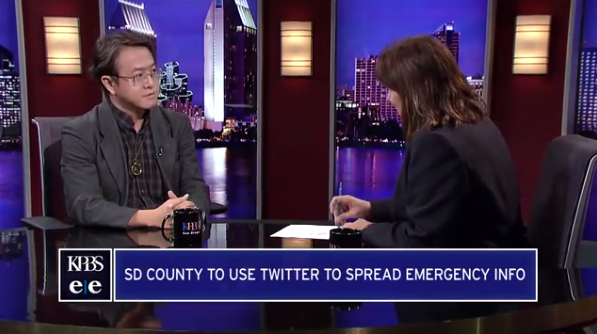
CBS8News-San Diego: Oct. 20, 2014, SDSU professor to use Twitter to alert San Diegans SAN DIEGO (CBS 8) - Have you ever wondered why certain tweets or Facebook posts go viral, and others get no interest whatsoever? A research team at San Diego State University has just received a $1 million grant from the National Science Foundation to answer that question, and then use that information to help protect San Diegans (source:CBS8News-San Diego). UT-San Diego: Oct. 14, 2014, SDSU, county want warnings to go viral In times of disasters, many people turn to social media instead of traditional outlets to get the latest information. Under a partnership between San Diego State University and the county, officials will enlist 1,000 Twitter users in San Diego County as volunteers with the goal of making emergency warnings go viral (source:UT-San Diego). 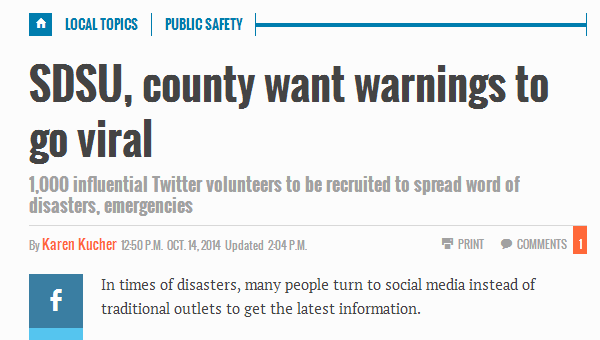
SDSU Newscenter: Oct. 13, 2014, Going Viral with Emergency Warnings San Diego County is partnering with San Diego State University to develop a new social media–based platform for disseminating emergency warnings to San Diego citizens (source:SDSU Newscenter). 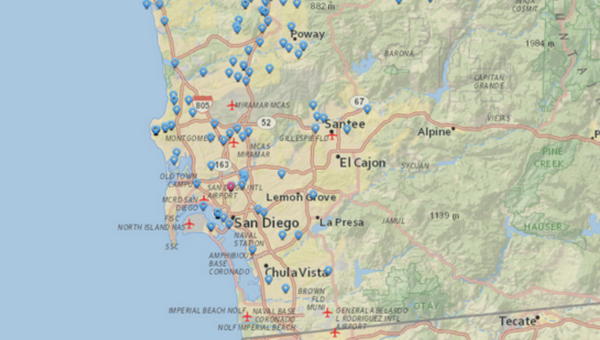
FOX5-San Diego: Oct. 13, 2014, SDSU looks for influential ‘tweeters’ to spread county’s emergency messages SAN DIEGO – Official emergency messages for San Diego County might be spread in the future by the most influential “tweeters,” San Diego State University announced Monday (source:FOX5-San Diego). KUSI: Oct. 13, 2014, San Diego's influential Twitter users to spread emergency messages SAN DIEGO (CNS) - Official emergency messages from the county of San Diego in the future might be spread by the region's most influential "tweeters," San Diego State University announced Monday (sorce:KUSI). Tech Insider: In a recent development to facilitate the general public with social media based emergency messaging systems, San Diego County and San Diego State University have partnered under the leadership of Ming-Hsiang Tsou, an SDSU geography professor to start a system in the county for disseminating emergency messages from Twitter (source:Tech Insider). Phys.org: Oct. 14, 2014, Viral messaging research leads to Twitter-based emergency warning system San Diego County is partnering with San Diego State University to develop a new social media–based platform for disseminating emergency warnings to San Diego citizens (source:Phys.org). |
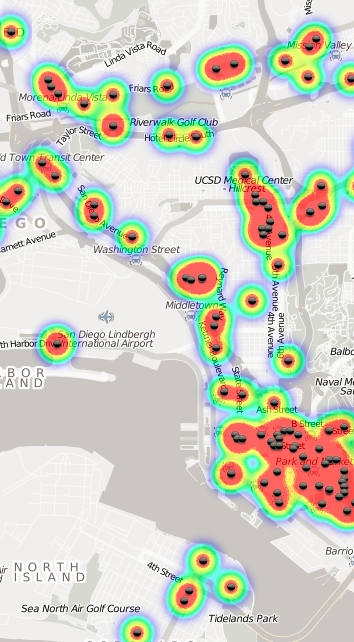
|





